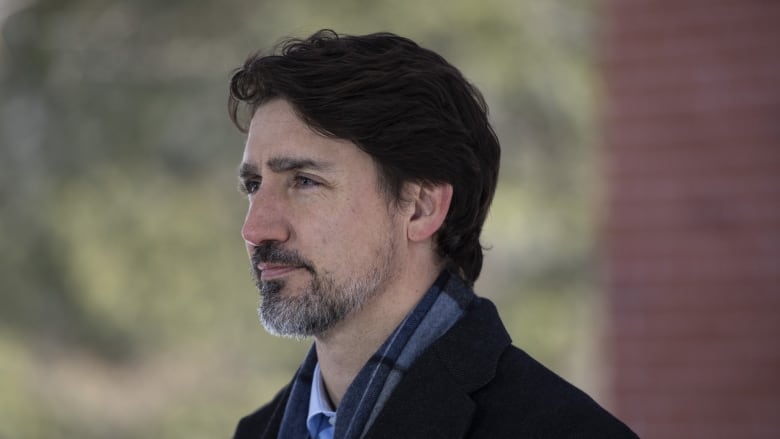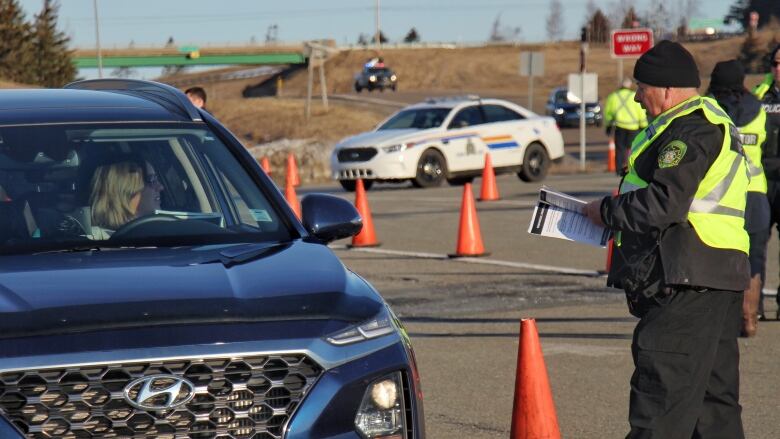The 'measure of last resort': What is the Emergencies Act and what does it do?
Premiers divided on the need for an act that gives Ottawa sweeping crisis powers: sources

Prime Minister Justin Trudeau and the provincial and territorial leaders spoke Monday about the possibility of invoking the federal Emergencies Act as theCOVID-19 pandemic spreads legislation that empowers Ottawa to do just about anything it thinks is necessary to cope with the crisis.
Trudeau briefed them on the current state of federal efforts to combat a pandemic that has infected some 2,500 Canadians and shuttered many businesses leaving more than a million people temporarily unemployed.
Some premiers were eager for a co-ordinated, national response while others were concerned about what invoking the act would mean for local decision making, multiple provincial sources toldCBCNews after the call.
There was no unanimity among the premiers over whether Ottawa should proceed with the act given the sweeping powers it would grant to the federal government at the expense of the provinces on thefrontlinesof thispandemic. Provincial and territorial leaders stressed the need for more essential supplies like face masks andcoronavirus testing devices.
Deputy Prime Minister Chrystia Freeland said earlier Monday the Emergencies Act is a "measure of last resort," but it might be requiredif Canada is to implement some extraordinary measures beyond existing provincial actions.
Every province has declared a state of emergency alreadyto restrict public movement and close most businesses, along with other restrictions, in an effort to limit the spread of the deadly virus.
"I can tell you that we haven't taken anything off the table from the Emergencies Act to new measures or existing measures under the Quarantine Act. They are tools that are at our disposal," Trudeau said.
"One of the key elements of the Emergencies Act is that it is an override over the provinces. It takes powers that normally are only in the hands of the provinces, or even municipalities, and puts them in the federal level," he said.
Trudeau promised to work closely with the provinces and territories if he takesthat step something the Emergencies Act already demands ofOttawa.
Asked Monday if he thought invoking the act isnecessary, Ontario Premier Doug Ford said it's a decision for Trudeau to make.
"Every single province is different, so we want to make sure that we still have the authority to make the decisions that we require for ... the health and the economy in each province," Ford told reporters ahead of the call with Trudeau and other first ministers.
Unprecedented powers
The Emergencies Act,a sweeping piece of legislation passed in 1988 as a replacement for the controversial War Measures Act, has never been used.
The actgives powers to the prime minister to respond to four different types ofemergency scenarios: public welfare (natural disasters, disease), public order (civil unrest), international emergencies and war emergencies.
The act grants cabinet the ability to "take special temporary measures that may not be appropriatein normal times" to cope with an emergency and the resulting fallout during an "urgent and criticalsituation."
It gives cabinet unprecedented powers to assume jurisdiction from the provinces in areas like health and commerce.
Invoking the act might help the federal government close some interprovincial borders to stop the spread of COVID-19 a measure that would have beenalmost unimaginable only days ago.
But some provinces, such as Nova Scotia and P.E.I., are already policing land crossings as they order anyone returning from a trip even a domestic one to self-isolate for 14 days upon entry.

The Emergencies Act could allow for the creation of travel passesto curtail movement, for example.
The act also grants cabinet powers to evacuate people and remove "personal propertyfrom any specific area," acquire property, direct any person or any class of person to "render essential services," regulate "distribution and availability of essential goods, services and resources," authorize "emergency payments," establish shelters and hospitals and impose criminal sanctions.
The act allows the federal government to essentially nationalize parts of the economy whereverit thinks it'snecessary as cabinet canassume "control, the restoration and maintenance of public utilities and services" to ensure the well-being of Canadians.
Jack Lindsay is a professor in the department of applied disaster and emergency studies at Brandon University in Manitoba and an expert in the country's emergency measures legislation.
Lindsay said he doesn't see the point of invoking federal legislation at a time when the provinces already have their own measures in placeto essentially shut down social and economic life in this country.
None of the provinces are looking for an authoritarian central government right now.- Jack Lindsay, Brandon University
In our federal system of government,with its devolved powers, provinces already have the ability to act, he said.
"The act doesn't really give the federal government a lot of extra new powers that aren't already being exercised by the provinces. All of the provinces already have the ability to commandeer essential resources and supplies," he toldCBCNews. "None of the provinces are looking for an authoritarian central government right now.
"If I was Justin Trudeau I'd be saying, 'I want to help the provinces coordinate. I don't want to impose a national set of powers on them.' I'm curious to see what they'll do.I just don't see the advantage of that right now."
Lindsay said the act and its powers might be useful lateras the pandemic spreads if some provinces start hoarding medical supplies, for example.
Under the act, Ottawa could redirect masks, ventilators or COVID-19 testing devices from one area of the country to particular "hot spots" in dire need of equipment or supplies. Lindsay also saiddifferent "classes of people," like nurses, might be also conscripted to work in other regions.
Enforcement measures for returning travellers
Health Minister Patty Hajdu said Monday the government is considering much more stringent enforcement measures to ensure returning travellers strictly self-isolate at home for at least 14 days to reduce community spread.
Some Canadians have been flouting that rule;police could be called upon to force people to stay home, if necessary. Hajdu also suggested a "hotline" might be established to allow concerned Canadians to report cases of noncompliance.
But local and province police services can onlybe nationalized in wartime. Such enforcement measures would be left tolocal peace officers to maintain, Lindsay said.
The federalQuarantine Act, which was updated in 2005 after the deadly SARS outbreak, does givethe federal health minister an arsenal of tools to force people to stay home.
Michael Bryant is the executive director of the Canadian Civil Liberties Association (CCLA). He said there is a lot of misinformation floating around about the Emergencies Act.
"I understand they want to hear from the leader of their country but, constitutionally, the federal powers that need to be enacted are being enacted now," he told CBC News, citing the provisions of the Quarantine Act.
"There are no powers under the federal Emergencies Act that need to be invoked right now because they are already being invoked by the provinces and the municipalities."
Unlike the case ofthe now-defunct War Measures Act which former prime minister Pierre Elliott Trudeau invoked during the Front de liberation du Quebec (FLQ) crisis government can't simply triggerthe Emergencies Act without the participation of Parliament.
If an emergency declaration is made, Parliament must be summoned to "sit within seven days after the declaration is issued," a measure added to the act to avoid abuse by the government of the day.
"There's a constitution in place that's going to limit how much provincial, federal or municipal government does to control people and limit civil liberties," Bryant said.
With files from the CBC's Hannah Thibedeau, Catharine Tunney















_(720p).jpg)


 OFFICIAL HD MUSIC VIDEO.jpg)
.jpg)



























































































